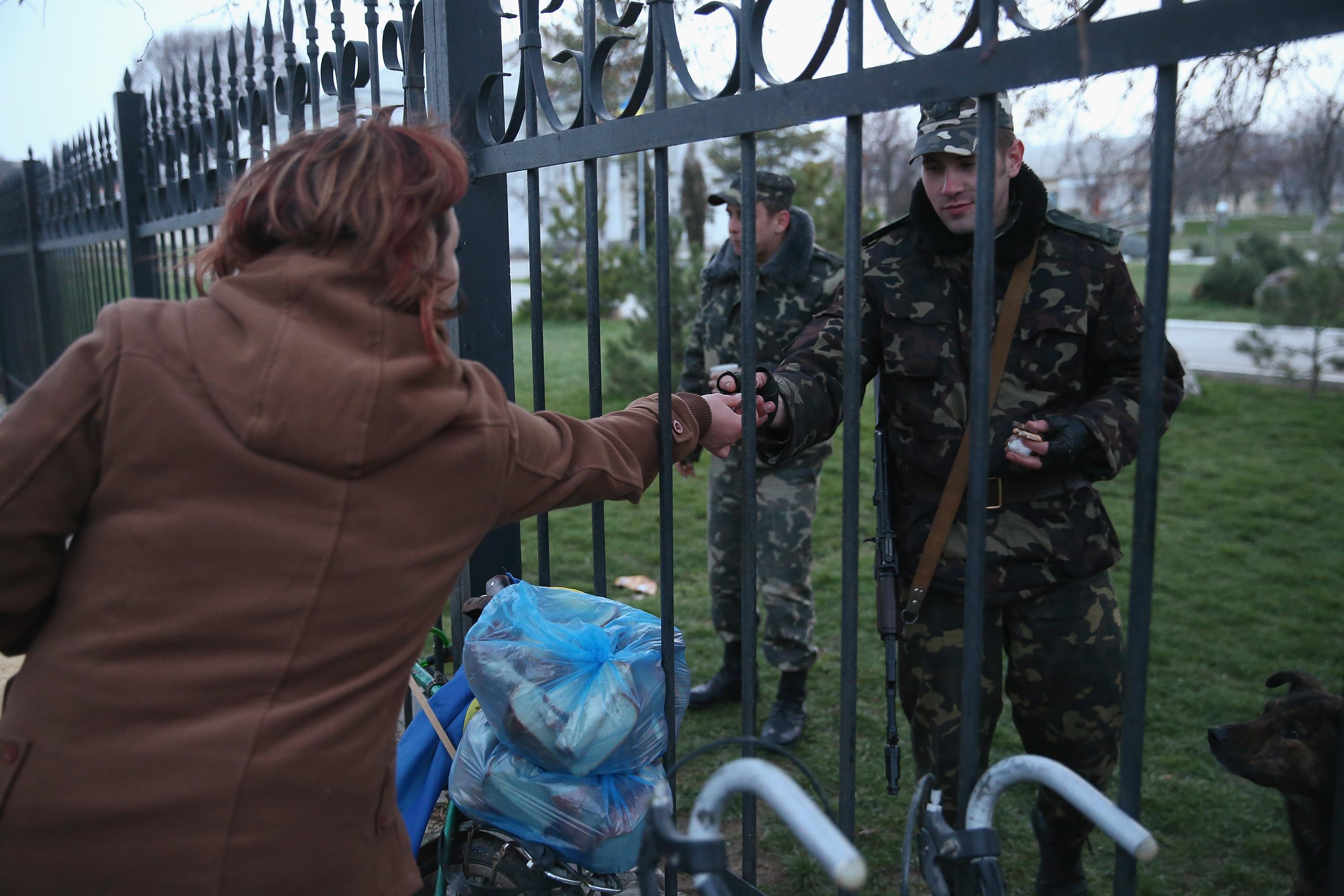The U.S. continues to try to ratchet up pressure on Russia in the form of sanctions while simultaneously attempting to stabilize Ukraine. On Tuesday, Congress approved the latest round of sanctions and a $1 billion loan guarantee to help bolster the beleaguered Ukrainian economy. NATO also moved to admonish Russia on Tuesday, suspending military cooperation and drafting plans to strengthen the 28-nation alliance’s defense capabilities.
The billion dollar aid program steps up U.S. support and specifically includes “$50 million to improve democratic governance and rule of law and fight corruption; support fair elections; and bolster civil society organizations,” the Associated Press reports. And that may be more important than you might think given the reports coming out about U.S. food aid already delivered to the Ukrainian military.
The U.S. has already offered some 300,000 ready-to-eat (MRE) meals and, according to Russian media, some portion of the food aid arrived in Ukraine over the weekend. And already it has led to a black market online, Simon Shuster of Time reports:
Last week, Vladimir Belonog, a military supplies salesman in Kiev, Ukraine, put a new item up for sale, not on his usual website, where he deals in everything from camouflage jumpsuits to paintball guns and ninja stars, but on an Internet auction site he hadn’t used before. The new items were U.S. army rations – known as a meals ready to eat, or MREs – and right on the packaging, alongside the seal of the U.S. Department of Defense, each one said, “U.S. Government Property, commercial resale is unlawful.” In the days before Belonog started selling them, the Pentagon had begun delivering about 300,000 MREs as military aid to help Ukraine defend itself against a Russian invasion. How Belonog got his hands on such items is unclear.
Reached by phone on Tuesday, he admitted that he was the seller, but denied that they were the same MREs that the U.S. government is providing to Ukraine. (A few minutes after Belonog spoke to TIME, he deleted the MREs from his sales page.) Asked about the label forbidding their resale, Belonog says, “What can I tell you? These things are easy to get, and they’re for sale all over the place.” That seems to be the case.
As Ukrainian and Russian media have been quick to point out, several Ukrainian websites started hawking American MREs by the caseload – and on the cheap – just as the U.S. government began delivering them to Ukraine as part of a non-lethal military aid package. It has been impossible to confirm whether this aid was simply taken out the backdoor of Ukrainian army warehouses and sold. Alexei Mazepa, a spokesman for Ukraine’s Defense Ministry, denies that this was going on. “The meals are safe and sound at our warehouses in Kiev,” he says. “They have not even been distributed to the bases yet.” But the coincidence of the online MRE bonanza has raised an urgent question for Ukraine’s new leaders: Can they guarantee that U.S. and European assistance will not simply be pilfered?
